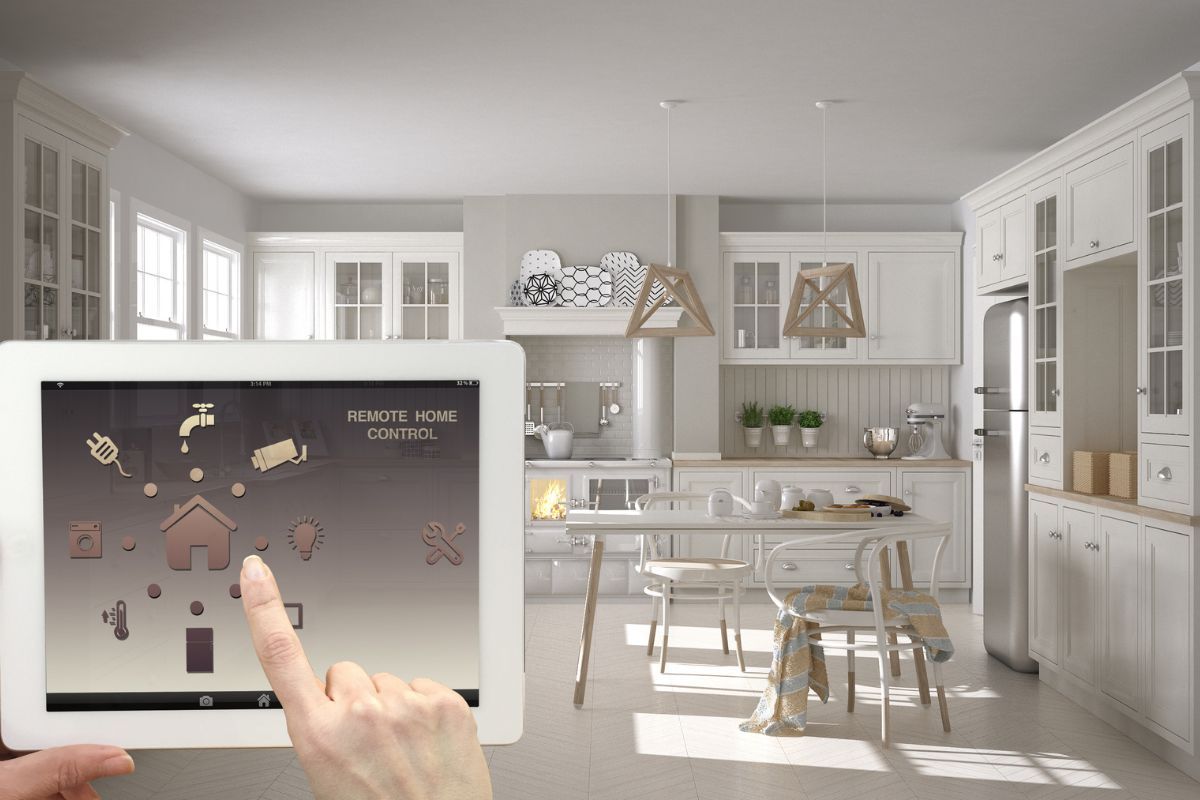The evolution of home technology in recent years has been nothing short of revolutionary, with smart home systems at the forefront of this change. These systems enhance home security, energy efficiency, and comfort, bringing futuristic living into the present. If you’re looking to upgrade your living experience, understanding the ins and outs of smart home technology is crucial.
This comprehensive guide will explore the latest trends in home automation, helping you navigate the complexities and discover the best solutions for your lifestyle. Any smart home automation can usually be purchased via electrical wholesalers, so keep an eye out for the latest tech on the market.
Table of Contents
What are smart home systems?
Smart home systems refer to a network of interconnected devices that can communicate with each other and be managed remotely through a central point like a smartphone app, tablet, or a specific central system controller. These devices include everything from lighting, heating and air conditioning systems, security cameras, doors, windows, locks, smoke detectors, surveillance cameras, and more.
Benefits of Smart Home Automation
Convenience:
Smart home devices can automate regular home processes, like turning on the lights and air conditioning before you arrive home or opening your garage as you drive up.
Energy Efficiency:
Many smart home systems offer superior energy efficiency, which saves money on utility bills and reduces your carbon footprint. For instance, smart thermostats learn your schedule and temperature preferences to optimise heating and cooling.
Enhanced Security:
With smart security cameras, motion detectors, and door locks, you can monitor your home remotely and receive alerts of any unusual activity, providing peace of mind.
Accessibility:
For individuals with mobility issues, smart home systems can provide enhanced accessibility by automating tasks that are physically challenging.
Key Components of a Smart Home System
Smart Lighting:
Use voice-activated assistants or your smartphone to manage the lighting in your house. You may programme lights to turn on and off for extra security, change the colour of the light to convey a distinct atmosphere, or even adjust the brightness depending on the time of day.
Smart Thermostats:
These gadgets remember your preferred temperature and set a schedule to efficiently heat or cool your house. To assist you in lowering your energy usage even more, they also give you thorough reports on your energy usage.
Smart security systems:
These systems, which include video doorbells, smart locks, and surveillance cameras, provide real-time warnings and monitoring, making it simpler to watch over your house from anywhere.
Smart Speakers and Assistants:
You can play music, set timers, manage other smart devices with voice requests, and receive immediate answers to your inquiries with gadgets like the Apple HomePod, Google Home, and Amazon Echo.
Hubs for home automation:
Smart devices can function more efficiently when they are integrated into a single ecosystem. Examples of such hubs are Samsung SmartThings, Wink, and others.
Planning Your Smart Home System
Identify Your Needs:
Assess what aspects of home life you want to automate and what problems you’re trying to solve. Whether it’s security, energy savings, convenience, or all three, knowing your priorities will guide your choices.
Choose a platform:
Decide if you want a proprietary system (like Apple HomeKit, Google Assistant, or Amazon Alexa) or something more open and customisable, like Samsung SmartThings. Each platform has its own strengths and compatibility features.
Start Small:
You don’t need to outfit your home with every smart device right away. Start with one or two devices, like a smart thermostat or a smart lock, and expand as you become more comfortable with the technology.
Consider Integration:
Ensure that the devices you purchase can integrate with each other. Devices that are compatible with major platforms like Google Assistant, Amazon Alexa, or Apple HomeKit will likely work well together.
Think about security:
As with any technology, security is paramount. Use devices from reputable brands, keep your software up-to-date, and use strong, unique passwords for your devices and network.
The Future of Smart Home Automation
The future of home automation is incredibly promising, with advancements in AI and machine learning enhancing the capabilities of smart home devices. Future smart homes are expected to be even more intuitive, learning from your habits and preferences to create an environment that adjusts to your needs without input.
As smart technology continues to evolve, so will the ways we interact with our homes. New developments in IoT (Internet of Things) technology will lead to smarter, more efficient home ecosystems that could one day anticipate our needs before we even articulate them.
Smart home technologies, which offer unmatched efficiency, security, and convenience, have completely changed our way of life. The path to a smarter home is gratifying, regardless of your level of computer proficiency or familiarity with home automation. Knowing the newest developments in smart home automation trends and technologies will help you make wise decisions that improve your quality of life at home. Recall that selecting the ideal parts for your lifestyle and skillfully integrating them to create a genuinely intelligent home environment are the keys to a successful smart home system.
















